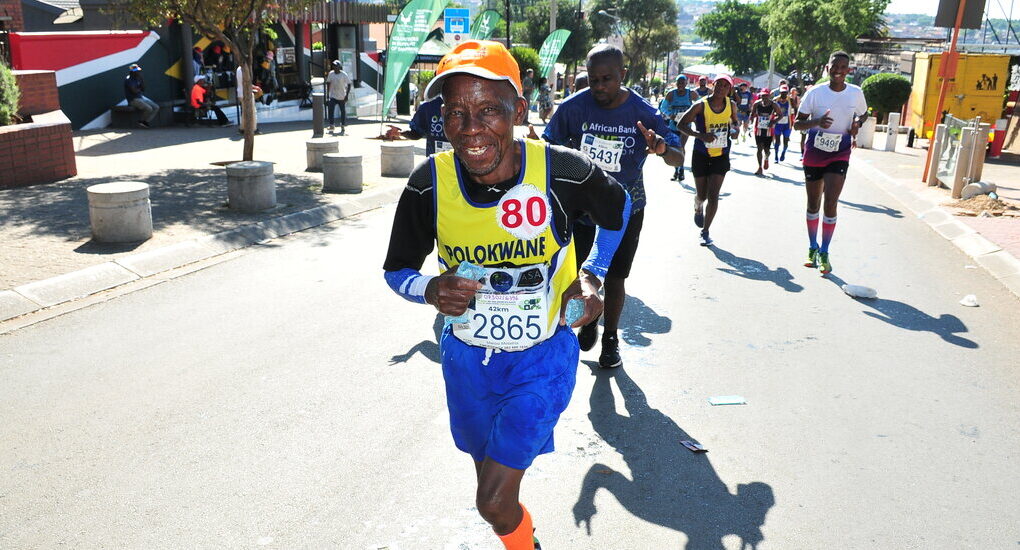But even among that rarefied bunch, Mosehla cuts a distinct profile. He qualified for the Comrades with a standard marathon time of 3 hours 51 minutes — 40 minutes faster than the global average for anyone of any age. And at this year’s Comrades, he ran a pace of nearly six miles an hour — speedier than more than 10,000 of the race’s 15,000 finishers.
“People ask me why I refuse to be old,” he said on a recent evening, sitting in the living room of his house, which he built himself. By now, he has outlived two wives, two of his 17 children and most of his childhood friends. But he still takes on construction jobs and, of course, goes running three times a week. “When you run, you stay young,” he said.
Outside Mosehla’s home, a breeze tinkled what sounded like a huge wind chime. But it was, in fact, his more than 300 race medals, which he had strung up on his washing line to show a visiting journalist. “They are my legacy,” he said.
Mosehla grew up and still lives in the village of Ga-Mogashoa, in South Africa’s rural northeast. The youngest of six children, he was born at home — “we had no clinics here then” — and spent his childhood tending his family’s cattle on the rocky hillsides and in valleys scooped between them. At times, he and his friends would walk more than 20 miles a day with their herds, and would sleep beside them in the grass. “I knew all those cattle by name,” he said.
In 1959, when he was 17, Mosehla asked his father if he could go to school so that he could learn to read and write. “In those days, going to school late was the common thing here,” said Benson Leshilo, a friend of Mosehla’s. “It was the situation of the time,” he said, referring to apartheid, the brutal system of segregation that deliberately kept Black South Africans poor and undereducated.



